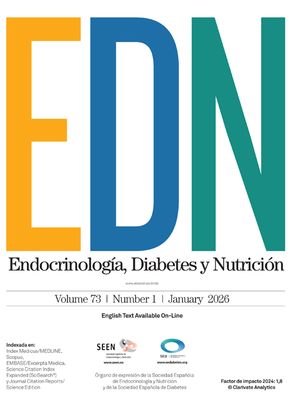Thyroid hormone resistance syndromes are a group of genetic conditions characterized by decreased tissue sensitivity to thyroid hormones. Three syndromes are currently recognized, in which resistance to hormone action is due respectively to mutations in the gene encoding for thyroid hormone receptor TRb, impaired T4 and T3 transport, and impaired deiodinase-mediated T4 to T3 conversion. An updated review of each of these forms of resistance is provided, and their pathogenetic mechanisms and clinical approaches are discussed.
La resistencia a hormonas tiroideas es un grupo de síndromes de causa genética caracterizados por la disminución de la sensibilidad tisular a estas hormonas. En la actualidad se distinguen tres formas, en los que la resistencia a la acción hormonal se debe, respectivamente, a mutaciones del gen que codifica el receptor nuclear de T3 TRb, a alteraciones en el transporte celular de T4 y T3, y a defectos en la conversión de T4 en T3 mediada por desyodasas. En esta revisión se hace una exposición resumida y actualizada de cada una de estas tres formas de resistencia y se discuten los mecanismos patogénicos y aproximaciones clínicas.




